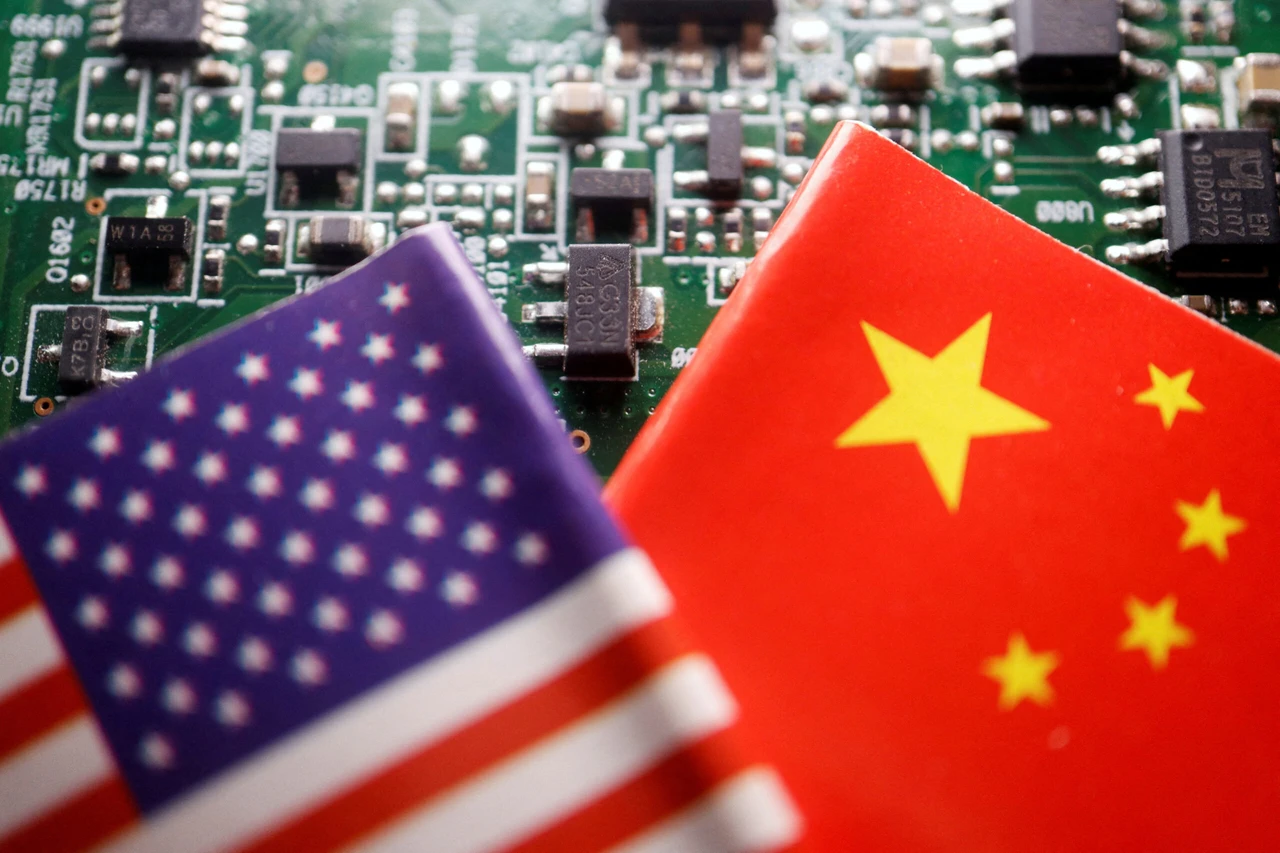US considers restrictions on China’s access to AI memory chips
 Flags of China and U.S. are displayed on a printed circuit board with semiconductor chips, in this illustration picture taken February 17, 2023. (Reuters Photo)
Flags of China and U.S. are displayed on a printed circuit board with semiconductor chips, in this illustration picture taken February 17, 2023. (Reuters Photo)
The U.S. is weighing unilateral restrictions on China’s access to AI memory chips and related equipment, a move that could escalate the tech rivalry between the world’s two largest economies.
This measure aims to prevent Micron Technology Inc., SK Hynix Inc., and Samsung Electronics Co. from supplying Chinese firms with high-bandwidth memory (HBM) chips.
Escalating tech rivalry
The Biden administration is actively working on several restrictions to keep vital technology away from Chinese manufacturers. These include limits on the sale of chipmaking equipment.
If enacted, the measure would cover HBM2 and more advanced chips, including HBM3 and HBM3E, as well as the tools needed to produce them.
These chips are crucial for running AI accelerators from companies like Nvidia Corp. and Advanced Micro Devices Inc.
Micron is largely unaffected by this potential restriction, having stopped selling its HBM products to China after Beijing banned its memory chips from critical infrastructure in 2023. However, the situation is more complex for South Korean firms.
The U.S. might impose controls using the foreign direct product rule (FDPR), given SK Hynix and Samsung’s reliance on U.S. chip design software and equipment.
Upcoming restrictions, commerce department’s position
A spokesperson from the U.S. Department of Commerce stated, “We continually assess the evolving threat environment and update our export controls as necessary to protect U..S national security and safeguard our technological ecosystem. We remain committed to working closely with our allies who share our values.”
The new restrictions, including sanctions against over 120 Chinese firms and fresh limits on various types of chip equipment, are expected to be announced as soon as late August. Key allies like Japan, the Netherlands and South Korea will likely receive exemptions, meaning the measures would primarily target U.S. companies.
Pressure on global partners
The U.S. has already requested Seoul to restrict chip technology exports to China, focusing on manufacturing equipment, and adopt similar controls.
Additionally, the U.S. has pressured Japan and the Netherlands to stop servicing restricted gear already in China.
The restrictions aim to curb direct sales of HBM chips to Chinese companies and lower the threshold for what qualifies as advanced dynamic random access memory (DRAM).
This move targets leading Chinese memory chipmaker ChangXin Memory Technologies Inc. (CXMT), which can produce HBM2.
Biden administration officials plan to create a list of critical components China needs for semiconductor production and implement a zero de-minimis rule. This tighter standard under FDPR would potentially restrict any product containing U.S. technology, though a large group of U.S. allies, including Japan and the Netherlands, will be exempt.
In response to tighter U.S. restrictions, Huawei Technologies Co. is promoting its Ascend AI chips as alternatives to Nvidia and AMD products.
However, the supplier of HBMs bundled with Huawei’s Ascend chips remains unclear.



